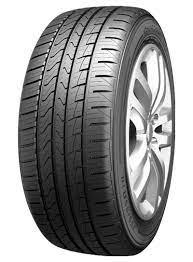1. Types of Commercial Tyres
There are a variety of different types of commercial tyres that are available on the market. The most common type of commercial tyre is the radial tyre. Radial tyres are made of rubber that is stretched over a steel or aluminium ring. The steel or aluminium ring is then mounted on the wheel. Radial tyres are the most common type of tyre on the market because they provide a smooth and comfortable ride.
Another type of commercial tyre is the bias ply tyre. Bias ply tyres are made of rubber that is stretched over a cord that is woven together. The cord that is woven together is then mounted on the wheel. Bias ply tyres are not as common as radial tyres, but they are still used on a variety of vehicles. Bias ply tyres are known for their durability and resistance to damage.
Another type of commercial tyre is the off-road tyre. Off-road tyres are designed for vehicles that will be driving on rough terrain.
2. Buying Commercial Tyres
When you are looking to buy commercial tyres, there are a few things you need to take into account. You need to ensure the tyres can carry the weight of the vehicle and its cargo.
Another important factor is the type of terrain the vehicle will be travelling on. If you will be travelling on rough terrain, you need tyres that can handle that type of terrain.
You also need to consider the climate. If you will be driving in a hot climate, you need tyres that can handle the heat.
The price of the tyres is also important to consider. You need to find tyres that are affordable and that will meet your needs.
When you are looking for commercial tyres, it is important to consider all of these factors. By taking all of these factors into account, you can find the right tyres for your vehicle.
3. Fitting Commercial Tyres
It is vitally important that commercial tyres are fitted in the correct way, in order to ensure their safety and performance on the road. Incorrectly fitting commercial tyres can lead to a number of problems, including uneven tyre wear, decreased fuel efficiency and, in extreme cases, tyre failure.
When fitting commercial tyres, it is important to ensure that the correct size and type of tyre is used. Fitting a tyre that is too small can result in decreased stability and handling, while fitting a tyre that is too large can lead to increased wear and tear. It is also important to make sure that the tyres are inflated to the correct pressure, as under-inflated tyres can lead to decreased fuel efficiency and increased wear and tear.
In order to ensure that your commercial tyres are fitted correctly, it is always advisable to seek the help of a professional tyre fitting specialist.
4. Maintaining Commercial Tyres
1. Check the pressure regularly
It’s important to check the pressure of your tyres on a regular basis. This can be done with a tyre pressure gauge. You should make sure the tyres are inflated to the correct pressure, as this will help to extend the life of the tyre and improve the fuel efficiency.
2. Keep an eye on the tread
The tread on your tyres is important, as it helps to improve the grip on the road. You should make sure to keep an eye on the tread, and replace the tyres when the tread depth gets too low.
3. Rotate the tyres
It’s a good idea to rotate the tyres every 6,000 miles. This will help to even out the wear and tear on the tyres.
5. Summary:
Commercial tyres are tyres that are designed for use in commercial vehicles. They are typically larger and more durable than tyres designed for passenger vehicles. Commercial tyres are also typically more expensive than passenger tyres.
There are a number of factors that you should consider when choosing commercial tyres. You need to make sure that the tyres are able to handle the weight of the vehicle.
You also need to consider the type of terrain that the vehicle will be driving on. Commercial tyres are designed for a variety of different terrains, including asphalt, concrete, and dirt.
The price of Commercial Tyres Braintree can vary depending on the size and type of tyre.
When choosing commercial tyres, it is important to consider the weight of the vehicle, the type of terrain, and the price.
